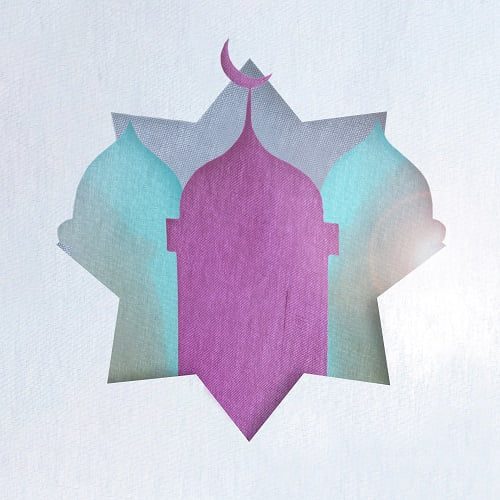
Blasphemy refers to the act of showing contempt or irreverence towards religious beliefs or figures. In Muslim countries, blasphemy is a serious offense. Individuals accused of committing this offense can face severe punishment, and even become victims of mob lynching. In this article, we will explore the issue of blasphemy in Muslim countries. We will also examine the laws, the cultural and social factors that contribute to its prevalence, and the challenges that arise in tackling this issue.
What Does Islam Say About Blasphemy?
The Islamic texts, specifically the Quran and the Hadith, do not provide a specific definition of blasphemy or prescribe any punishment for it. However, they do stress the importance of respecting and upholding the sanctity of the Prophet Muhammad (PBUH) and the religion of Islam. The Quran warns against insulting or mocking the Prophet Muhammad and states that such actions are a violation of the respect and honor that he deserves.
The Hadith, which is a collection of sayings and actions of the Prophet Muhammad (PBUH), similarly emphasizes the need to protect the dignity and honor of the Prophet and the Islamic faith. The Hadith contains several instances where the Prophet Muhammad expressed anger or disappointment over disrespectful or insulting behavior towards him or Islam. However, it is important to note that the Hadith does not prescribe any specific punishment for blasphemy.
It is worth noting that the interpretation and application of Islamic texts vary widely among Muslim scholars and communities. Some interpret the texts as calling for harsh punishment for blasphemy, while others emphasize the importance of forgiveness and compassion. Ultimately, the interpretation and application of Islamic texts in relation to blasphemy depend on the cultural, social, and political context.
Early Incidents of Blasphemy in Islamic History
Blasphemy, which refers to speech or actions considered disrespectful or offensive to religious beliefs, has been a controversial issue throughout Islamic history. During the early Islamic period, blasphemy was viewed as a serious offense that threatened the unity of the community and the sanctity of Islamic beliefs.
One of the earliest incidents of blasphemy occurred during the lifetime of the Prophet Muhammad. According to Islamic sources, a Jewish man named Ka’b ibn al-Ashraf composed derogatory poetry about the Prophet Muhammad, which angered the Muslims. The Prophet, reportedly, authorized his assassination in response to the perceived blasphemy.
After the death of the Prophet Muhammad, blasphemy continued to be a sensitive issue, particularly during the caliphate of Umar Ibn al-Khattab. Umar implemented harsh punishments for those who engaged in blasphemy or insulted Islamic beliefs. According to historical accounts, Umar ordered the execution of several individuals who had accusations of blasphemous against them.
The concept of blasphemy in the early Islamic period also included actions that were disrespectful or offensive to Islamic beliefs. For example, during the reign of the Umayyad caliphate, the governor of Medina ordered the destruction of a mosque that had been built without the approval of the caliph. The governor’s actions were perceived as blasphemous because he had violated the sanctity of a holy site.
Throughout Islamic history, the definition and punishment of blasphemy have varied depending on the political and cultural context. Nevertheless, the concept of blasphemy has remained an important issue in Islamic theology and law, shaping the discourse around religious freedom and the boundaries of free speech.
The Laws Against Blasphemy
In Muslim countries, the penal code often includes blasphemy laws and the state enforces the law. These laws typically prohibit the insulting or defaming of the Prophet Muhammad (PBUH), the Quran, and other Islamic religious symbols.
Punishments for blasphemy vary from country to country. Some countries impose fines or imprisonment, while others prescribe the death penalty.
Blasphemy is a criminal offense in 32 Muslim-majority countries, with Iran, Pakistan, Afghanistan, Brunei, Mauritania, and Saudi Arabia punishing it with the death penalty.
In some countries, the laws against blasphemy lack proper definition, leading to confusion and abuse. For example, in Pakistan, blasphemy is a criminal offense. Opportunists often misuse the law to settle personal scores or to target religious groups. The lack of clarity in the law and the discretion given to the authorities have resulted in many innocent people facing severe punishment.
According to a report by the Islamabad-based think tank Centre for Research and Security Studies (CRSS), 107 women and 1,308 men faced accusations of blasphemy from 1947 to 2021, resulting in the extra-judicial killing of 18 women and 71 men.
Cultural and Social Factors
Blasphemy is not just a legal issue in Muslim countries; it is also a cultural and social one. Religious beliefs and practices are deeply ingrained in the culture of these countries. Any perceived insult to these beliefs can be seen as an attack on society as a whole. Blasphemy becomes a way of asserting one’s identity and protecting the community from external influences.
Moreover, in many Muslim countries, there is a strong tradition of religious authority. Religious leaders play a central role in shaping public opinion and thus the implementation of blasphemy laws. Religious leaders often call for strict punishments for those who violate these laws.
Challenges in Tackling Blasphemy
The issue of blasphemy in Muslim countries is a complex one, and there are several challenges in addressing it effectively. One of the main challenges is the lack of consensus on what constitutes blasphemy. The interpretation of religious texts and symbols can vary widely. What is blasphemy in one context may not be as such in another.
Another challenge is the politicization of blasphemy. In many Muslim countries, blasphemy laws have been used as a tool to suppress political dissent or to target religious groups. This has led to a situation where the enforcement of these laws is often arbitrary and discriminatory.
Finally, there is a lack of awareness and education around the issue of blasphemy. Many people in Muslim countries do not understand the legal or ethical implications of blasphemy. There is also little discussion or debate around the issue. This lack of understanding can contribute to the prevalence of blasphemy and the difficulties in tackling it.
Conclusion
Blasphemy is a contentious issue in Muslim countries. While there is a need to protect religious beliefs and symbols, there is also a need to balance this with the principles of free speech and human rights. Addressing the issue of blasphemy requires a multi-faceted approach. It includes legal reform, education, and dialogue between religious leaders and civil society.






